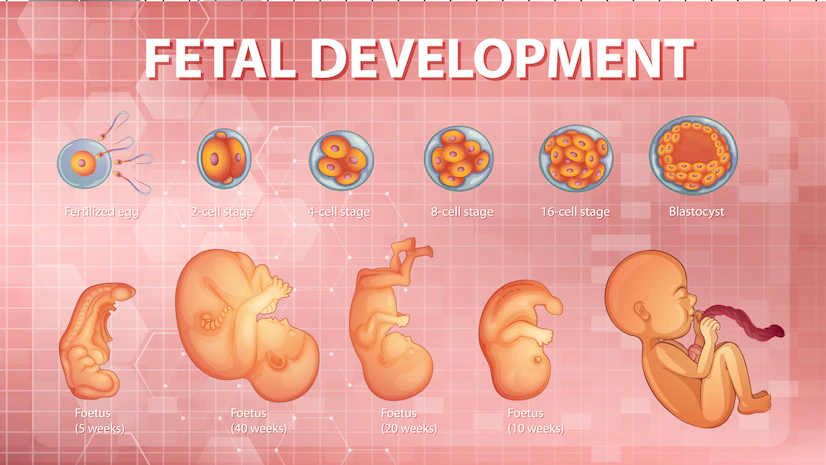We will know everything about the signs of chemical pregnancy through this digital document from Bekoka press.
signs of chemical pregnancy
signs of chemical pregnancy occurs when a blood test verifies pregnancy is positive. Sadly, repeat tests do not rise or remain constant, and we rarely see the pregnancy on ultrasound. Although a chemical pregnancy is disheartening, we would like you to understand that there is a positive thing in that sperm and egg met and shape an embryo. That embryo did attach and insert into the wall of your uterus, but it did not grow into a viable pregnancy for various reasons. Nevertheless, chemical pregnancy symptoms such as nausea, vomiting, and breast tenderness may occur in a few cases. Heavy blood flow is another signs of chemical pregnancy.
What is the distinction between a chemical and a clinical pregnancy?
The term “chemical pregnancy” could indeed seem cold and distant. Notwithstanding, the name does not refer to the pregnancy experience. Instead, chemical pregnancies are named after the chemicals in your body, or hormones, that cause a positive pregnancy test result. The embryo would then produce the human chorionic gonadotrophin (hCG) hormone within five weeks. Because it’s too early to see indications of your growing embryo on an ultrasound, your hCG hormonal changes are the only accurate indication that you’re pregnant at this spot. When the embryo ceases to grow, your hCG levels fall.
Your hCG levels rise during a clinical pregnancy. Your doctor will be able to detect signs of your fetus.
What causes chemical pregnancies?
Women often blame themselves, but it was simply an everyday occurrence that she could not have avoided. It could be caused by an infection, the uterine lining, reduced hormone levels, or other unknown factors. The consensus is that a chromosomal anomaly caused developmental issues as the fetus grew. This renders the pregnancy unviable, as the body recognizes an inset. It is difficult to determine the exact purpose of a chemical pregnancy.
Chemical Pregnancy Causes
Most chemical pregnancies or slightly earlier miscarriages happen during the first six weeks of pregnancy. Though it is unclear why women have chemical pregnancies, there are a few definite causes:
- A chromosomal or genetic defect that prevents the embryo from developing correctly.
- A uterine abnormality that prevents insertion, such as fibroids.
- A hormonal imbalance that makes pregnancy incredibly hard.
A chemical pregnancy does not guarantee that the subsequent one will be a chemical pregnancy. Nevertheless, your chances of getting one rise if you’re 35 or older or have a pre-existing or undetected medical condition, like thyroid or clotting disorders.
What is the duration of chemical pregnancy bleeding?
A chemical pregnancy usually occurs so early that several women are unaware they are pregnant. Women not vigorously trying to conceive may mistake it for a late period. If you had a chemical pregnancy, you could expect bleeding to last as long as your normal menstrual cycle or even longer.
Heavy bleeding could also occur in some women. They could indeed soak two pads per hour for two hours straight. This may last for the duration of your regular menstrual cycle or slightly longer. On the other hand, early pregnancy loss could indeed cause excessive bleeding.
When does a chemical pregnancy take place?

A chemical pregnancy occurs during the first five weeks of pregnancy. Throughout this time, the fetus does not create; only chemical change happens in your body. This is an extremely early miscarriage. It is not feasible to see the baby’s heartbeats at this phase.
This is a pregnancy-like situation. The sperm has fertilized the egg, and it is currently developing. Nevertheless, the pregnancy fails to grow for some purpose, and you have a miscarriage very early on.
The causes of a chemical pregnancy remain unknown. Nevertheless, some circumstances may raise the likelihood of a chemical pregnancy. These are some examples:
- Specific infections
- Some chronic illnesses, such as thyroid disease, are not handled on time.
- Abnormalities of the uterus that are either acquired or congenital.
- Uterine lining deficiency.
- Hormonal imbalances are present.
- The placement of the fetus outside the uterus.
- Fibroids
- Blighted egg.
- Anomalies in the chromosomes.
- Defect in the luteal phase.
Chemical Pregnancy Procedure
During pregnancy, a variety of complications could indeed arise. A chemical pregnancy is one such complication. Unfortunately, there is no method to escape a chemical pregnancy. There are no medical procedures for the situation either. Following a chemical pregnancy, your doctor may advise you to do certain things.
Examining the fetus for anomalies
If you have a history of chemical pregnancies, your doctor could send tissues or the fetus for testing. This is done to rule out any irregularities that could be causing the repetitive chemical pregnancies—this aids in determining the next course of action.
Tests to look for other health problems
If you have had a chemical pregnancy, your doctor may recommend tests.
Certain illnesses and underlying conditions could harm your pregnancy. If a health problem is discovered, treatment could indeed begin right away.
Counseling for Emotions
Losing a pregnancy, even in its early stages, can be disastrous for you and your partner. To assist you in coping with feelings of grief and guilt, your doctor may recommend emotional counseling. This can be extremely helpful in dealing with the grief of losing a pregnancy.
Other medical options
For chemical pregnancy, your doctor may also recommend treatments available, like baby aspirin as well as progesterone. There are also surgeries available to assist correct any uterine abnormalities.
Is there a difference between a chemical pregnancy and a miscarriage?
A chemical pregnancy is a very early miscarriage in which the pregnancy’s development is limited to chemical changes in the body. This occurs when a woman miscarries after conception yet before the fetus begins to grow.
Sometimes though they are not classified as a pregnancy or a miscarriage, they are both. The only difference between a chemical pregnancy and a miscarriage is when they occur. A chemical pregnancy occurs between three and four weeks of pregnancy.
Another distinction is the time it takes your body to recoup from these. The physical recovery period for your body is sped up in the event of a chemical pregnancy.
References
Chemical Pregnancy: 7 Signs and Symptoms of Chemical Pregnancy You Must Know


